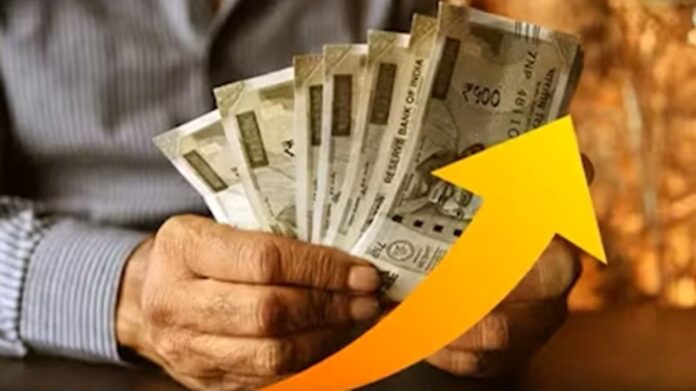8th Pay Commission: Millions of central government employees across the country are heartbroken. Numerous questions linger in their minds. What will the 8th Pay Commission’s recommendations hold for them?
How big will their salary increase be, when will the final recommendations be finalized, and how will the government calculate dearness allowance this time? Sources suggest the government may change a 10-year-old rule and set the DA meter to zero.
What is the government’s ‘masterplan’?
Dearness Allowance (DA) is calculated based on data from the Consumer Price Index for Industrial Workers (AICPI-IW). This index has a base year against which inflation is compared.
Existing rules
Currently, the base year for calculating DA is 2016. This was set when the 7th Pay Commission was implemented.
Proposed changes
Now that the 8th Pay Commission is to be implemented from January 1, 2026, the government can also change the base year for calculating DA to 2026.
Also Read: Weather Update: IMD predicts heavy rainfall over the next few days in THESE states
Understand in simple language
Changing the base year is like resetting the score of a game. When the base year is new, the calculation of dearness allowance also starts afresh, i.e., from zero.
Why is the base year being changed?
Over the past decade, people’s spending patterns, their needs, and the nature of inflation have completely changed. The things we spend on today are very different from those in 2016. Therefore, updating the base year is essential to accurately assess inflation and provide real benefits to employees.
What will change in DA calculation?
Let us understand from a table what will be the difference between the existing system and the new possible system.
Parameters 7th Pay Commission (existing system) 8th Pay Commission (probable system) Base year of DA 2016 2026 (probable) What happened to old DA? 125% merged 60-61% (by January 2026) will be merged DA started from 0% Calculation base will be from 0% 2016 prices 2026 prices Impact Basic salary increased New basic salary will increase further
How will this work?
1. Step One – Merger
By January 1, 2026, your dearness allowance will have reached approximately 60-61%. Once the 8th Pay Commission is implemented, this entire DA will be added to your current basic salary. This will create your ‘new basic salary,’ which will be significantly higher than before.
2. Step 2 – Reset
Once the old DA is added to your basic salary, the DA counter will reset to 0%. Any subsequent dearness allowance increases will be calculated based on this new, increased basic salary.
Understand with an example
The same thing happened with the 7th Pay Commission. When it was implemented in 2016, the dearness allowance of 125% was merged into the basic pay, and the DA was reduced to zero.
What will be the impact on salary?
This change is beneficial for you. Why? Because when your future DA (e.g., 2%, 3%, or 4%) is calculated on your new, higher basic salary, the amount you receive will be higher. This will allow your total salary to grow even faster over time.
When will the 8th Pay Commission be implemented?
Panel Formation: The government may soon constitute the 8th Pay Commission panel. Report: The panel will take 18 months to submit its recommendations. Implementation: Regardless of when the recommendations are made, they are expected to be implemented from January 1, 2026. This means you will also receive the benefit of arrears.
Disclaimer
(Disclaimer: This article is based on reports and expert opinions. The final decision will be taken by the government only after the official report of the 8th Pay Commission is released.)




